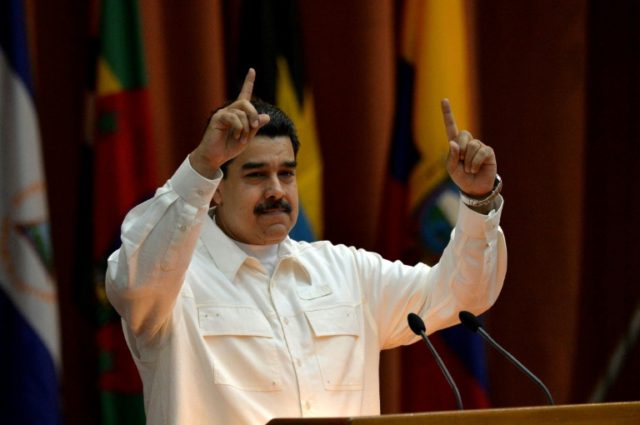The last newspaper openly opposed to Venezuelan dictator Nicolás Maduro’s socialist regime is fighting for survival amid a dismal economic climate and growing government hostility to the free press.
In a report on Thursday, Reuters details that there are only 20 staff members working in the vast newsroom of the El Nacional offices, with dozens of empty computers and desks. Signs on the walls ask employees not to steal toilet paper, and another asks for medicine for a sick family member.
Printing the paper has become increasingly difficult in recent years amid chronic shortages of necessary resources such as paper, ink, and printing equipment. Another difficulty they face is the continuous exile of staff as they leave the country to find work elsewhere.
Yet the paper is now also facing serious financial difficulty after Diosdado Cabello, head of Venezuela’s illegal Constituent Assembly and a close Maduro ally, successfully sued the paper for defamation for reprinting an article about his extensive ties to drug trafficking.
The payout of one billion bolivares equates to just $300, although the court may still adjust the figure for inflation that would lead to paying millions of dollars.
The paper regularly publishes harrowing stories about the country’s deep political, economic, and humanitarian crisis with on the ground reports that are often picked up by news services around the world. The paper has consequently come under scrutiny from senior regime officials who accuse it of trying to overthrow Maduro’s regime.
A lawyer for El Nacional said the company would appeal the ruling but did not say what would happen if it cannot pay. Under Venezuelan law, the government may seize the company and auction its assets if it is unable to pay.
However, the paper still manages to earn valuable foreign currency from online advertising. In a phone interview with Reuters, the outlet’s owner, Miguel Henrique Otero, said he would fight for the paper’s survival from exile in Madrid.
“We’re going to try to maintain the print edition until the end, even if it’s just a page, because it’s politically symbolic,” he said.
As its circulation continues to drop, the paper’s editor-in-chief, Patricia Spadaro, added that there is now a “policy to suffocate the independent media in Venezuela.”
In March, the Institute for Media and Society of Venezuela found an overt crackdown against the free press across Venezuela during the past year, accompanied by a decline in freedom of expression, censorship, and the closure of more than 35 newspapers in the past five years.
However, overall freedom in Venezuela has been under attack since the days of the late dictator Hugo Chávez, who declared war on private media and successfully shut down dozens of outlets through intimidation of their employees and other backhanded tactics.
Maduro has accused the country’s private television networks of running a “terrorist campaign” designed to overthrow his presidency. Like nearly all totalitarian regimes, Maduro prefers the flow of information to come from state-run television propaganda, such as VTV and Telesur, which provide daily coverage of television networks and news websites.
Follow Ben Kew on Facebook, Twitter at @ben_kew, or email him at bkew@breitbart.com.

COMMENTS
Please let us know if you're having issues with commenting.